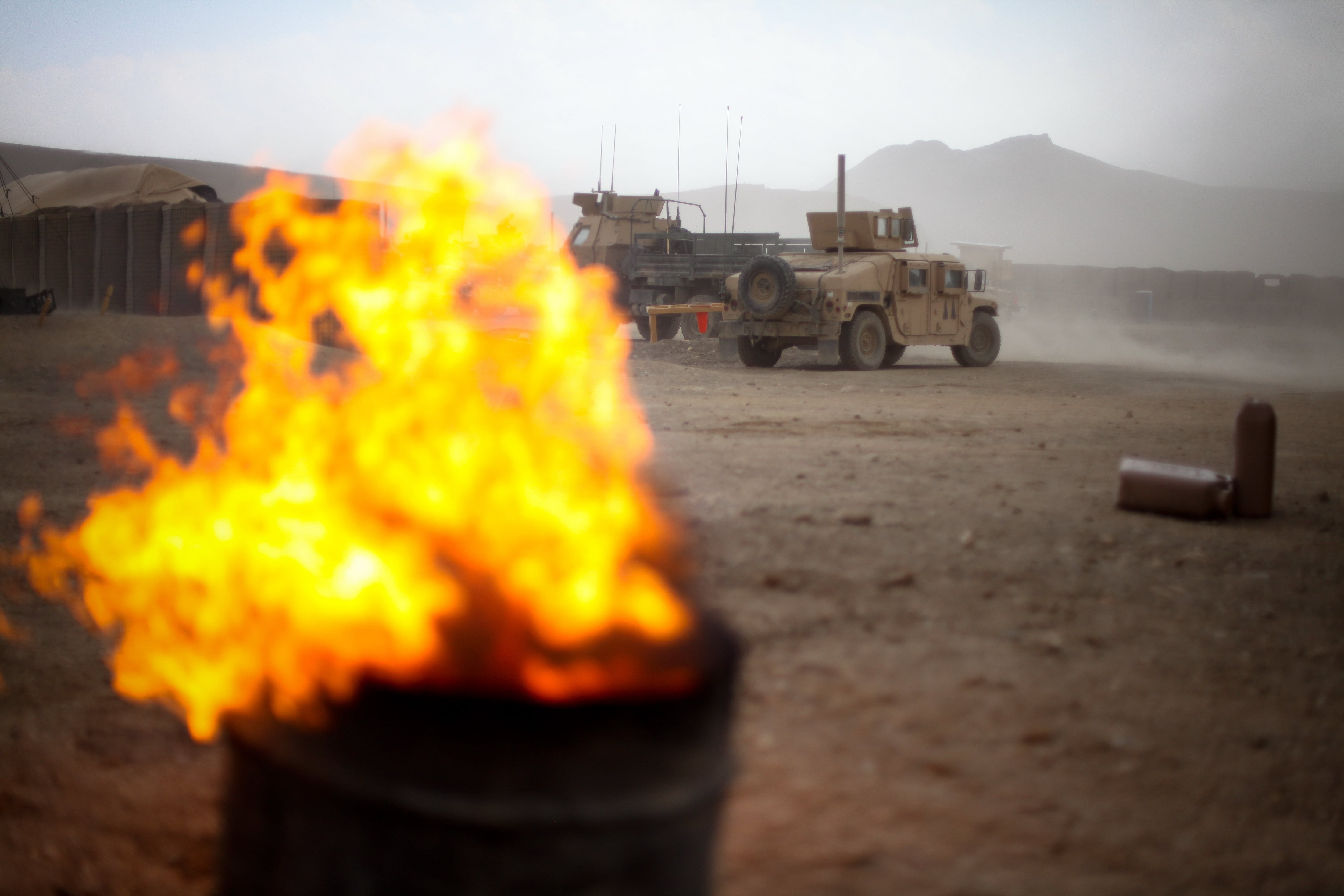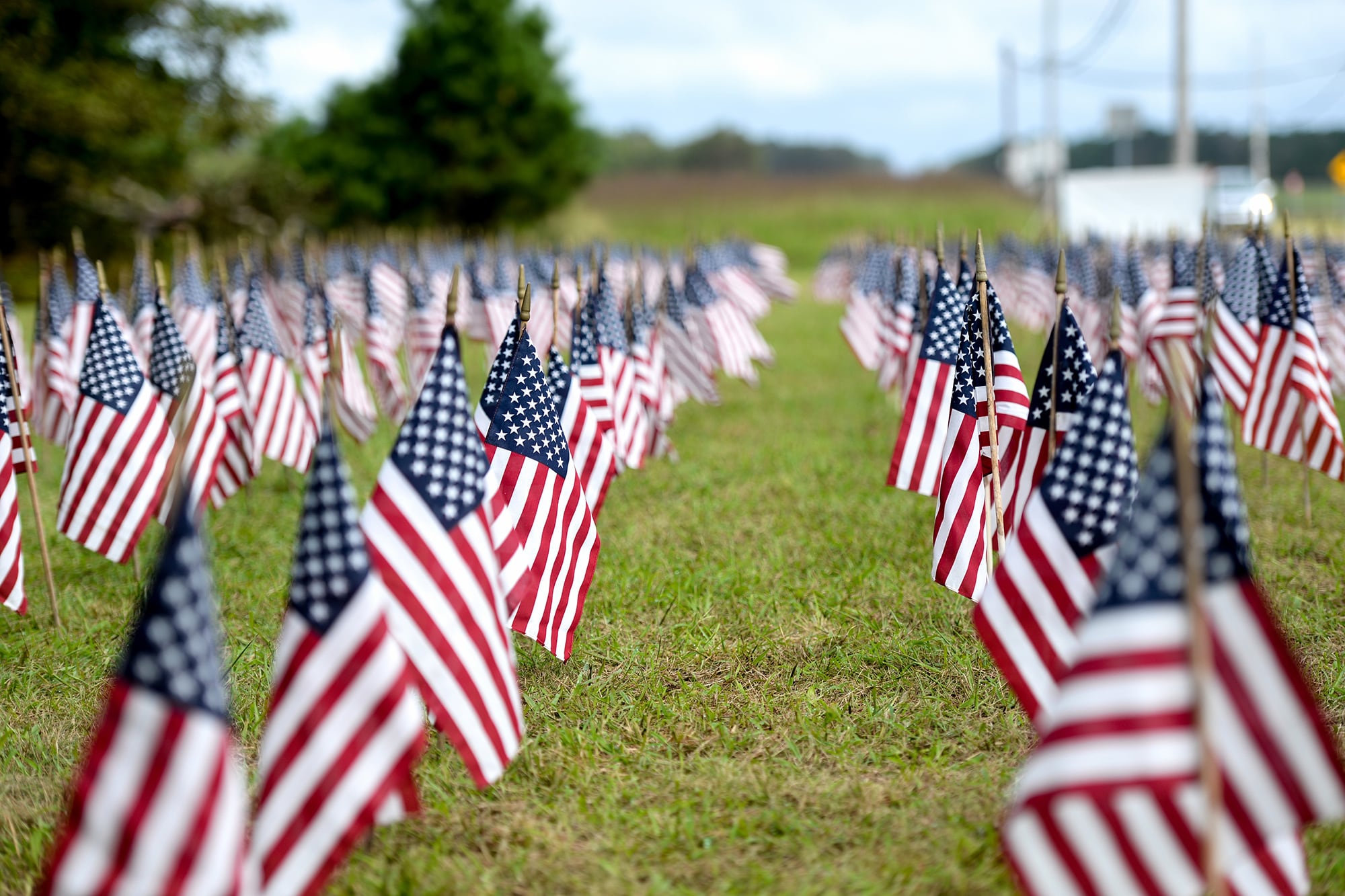Denis McDonough was part of President Barack Obama’s administration when officials began a high-profile push to solve the problems of veterans homelessness, suicide and toxic exposure illnesses.
Now, a decade later and serving as the Secretary of Veterans Affairs, McDonough acknowledges the frustration that the topics are still at the top of his agency’s to-do list.
“I’m not asking anybody for the benefit of doubt. Talk is cheap, full stop,” he said.
“I think I have a pretty good understanding of how to get things done. I think we’re out of the block strong. But again, I’m not asking for any benefit of the doubt. I understand we need to execute on this, and that’s what we intend to do.”
Department officials in August announced that for the first time, some veterans exposed to harmful burn pit smoke while serving in overseas war zones will get presumptive disability benefits, a move that could speed up help for tens of thousands of veterans of the most recent wars.
But lawmakers have said that doesn’t go far enough, and McDonough said he agrees. In a recent interview with Military Times, he laid out his goals for moving ahead on that issue, as well as the other medical and support challenges facing the department.
Portions of this transcript have been edited for brevity and clarity. Coming tomorrow: McDonough on the pandemic and the VA workforce.
RELATED

Military Times: You’ve heard from the veterans community about the frustration at the pace of dealing with burn pits and related health issues. How do you speed things up even more?
Denis McDonough: I feel intense urgency to move on. There’s a lot of factors for that.
One [factor] is the demand from the veteran community. And I feel intensely personally the urgency around making sure veterans with terminal cancers get care. That their families get the benefits that they rightly believe they’ve earned.
I feel particularly on the hook to somebody who’s been thinking about and worrying about this topic for a long time. That’s the president. He’s demanding that we lean forward on this. He is routinely pressing me to find out what the next steps are that we’re taking.
No veteran is going to have to wait another five or six years. We are moving because of pressure from and expectations from our veterans and because of a demand for accountability from the president.
MT: But you understand the skepticism here. These veterans have heard promises before. Does that mean we will see new policies rolling out at the beginning of next year? Does that mean we have to wait on Congress to pass legislation?
DM: We’re not waiting for Congress. I think it’s important that Congress do this. But we’re not waiting for them. There are a series of steps that we’re actively pursuing.
My job is to not prematurely announce them. My job is to not meet some expectation. My job is to demonstrate concrete and implementable steps. That’s the path we’re on. I’m hopeful that over the course of my time here that veterans will feel that I meant it when I said we’re not waiting.
RELATED

MT: You were with the Obama administration when the goal of reaching zero homeless veterans in America was announced. We saw great progress for a while there and now we’ve seen relatively flat numbers for the last few years. Is that still a realistic goal?
DM: I think zero is what the country expects. I think that the phrase “homeless veteran” is a phrase that should not exist in an English language. I find it heartbreaking.
This too, is an execution challenge. Too often we focus on policy making, too rare do we focus on policy execution.
I think the country’s expectation is that there not be homeless vets here. That’s why Congress has appropriated hundreds of millions of dollars for us to execute on this. We have the resources.
We increasingly have the people. We’re hiring additional people on things like the HUD-VASH program, which is a voucher program that we jointly run with the Department of Housing and Urban Development. It allows us to get monthly stipends, monthly vouchers for veterans to be in sustainable housing.
We have well-defined executable policies of care, because we know works. Let’s get a veteran in a house first, but then let’s address all the issues — substance abuse disorder, mental health, untreated mental health challenges, joblessness. We have well-established, proven interventions there.
The third thing we have is housing stock. Notwithstanding the very difficult real estate market in this country, I was assured when I was in Los Angeles last month that [the city] has plenty of housing stock to get those roughly 4,000 homeless veterans in Los Angeles into housing.
So if we’ve got the money, if we’ve got the interventions that work, and if we’ve got the housing stock, it’s a question of will.
MT: What do we need to see to have improvements in those homeless numbers?
DM: From about 2009 to about 2016, we reduced by half the number of homeless vets. We’ve also seen interventions that have prevented veteran homelessness. We estimate that has resulted in about 150,000 veterans being prevented from becoming homeless. These interventions are proven.
I don’t think we need massive new innovations. I think we need to put our shoulder to the wheel on this and work it.
I’ve told this story before, but I think it bears repeating. On Veterans Row [a homeless encampment] which is outside of our West LA VA Medical Center, for some period now there had been up to as many as 50 veterans a night living there in a makeshift camp, with tents on site. That’s the definition of non-sustainable.
I met a vet there [in September] who said that night, for the first time in seven months, he was going to be housed in a hotel. I said I think that’s great, but let’s make sure that tomorrow we get you into care.
Remember, our goal is housing first, and then let’s take care of the other issues. So by 10 the next morning, I got a note from our team in LA that he had been … moved into transitional housing on the West LA VA campus.
And what he gets there now is all of those treatments, substance use disorder treatment, mental health treatments, job training, education opportunities, so that we address the issues that lead to homelessness in the first instance.
What we have to do is do that 40,000 more times across the country.
That’s why I set out the goal last month that by Nov. 1 first everybody on veterans row would be in transitional or sustainable housing. They are now. Our next goal was getting 500 additional vets in LA into housing, transitional or sustainable housing, by the end of the year, so they can be in house for the holidays.
I know maybe that sounds a little corny. But you know what, I think a man or a woman who raised his hand to swear an oath to defend this country should be in a house for the holidays.
That’s the next step. And we’re just going to go from step to step, from strength to strength, to restore the momentum that we’ve had. That’s a doable thing.
RELATED

MT: On veterans suicide, there has been a push for years on solutions but frankly only incremental progress on reducing it. The White House just came out with a new prevention plan for the military and veterans community. Is this one going to work?
DM: What we’ve learned is that suicide is preventable. We’ve also learned that it requires a public health approach, meaning we have to address a whole range of health determinants to ensure that we reduce and eventually eliminate veteran suicide.
But we also know that it takes everybody doing their part. And by everybody, I mean everybody. VA and our practitioners, yes, but our community as well.
Congress has given us new authorities under [the Commander John Scott Hannon Veterans Mental Health Care Improvement Act of 2019] for us to partner with new actors in local communities, communities that know their veterans best.
We also now have additional data about that horrifying moment when a veteran finds him or herself in crisis, which is why we are out now with a very aggressive public service announcement campaign around two things.
First, don’t wait for something to become a crisis. We’re urging veterans and veterans’ families to be in touch with us at VA and with other professionals to think through steps that you’ll need in a crisis. We’re saying don’t wait to reach out.
The next thing we’re doing is we’re saying because suicide attempts with a firearm, in up to 95 percent of those of attempts lead to [death]. Attempts using other methods only ultimately lead to suicide in 5 percent of instances. We’ve rolled out with a very aggressive public messaging campaign on locking and storing firearms.
That campaign in particular, is getting significant uptick, more than a billion views of our campaign advertising. Those views are also leading to engagement on our website where people can make plans on safely storing firearms.
We’re at 9,500 cases of veterans and veterans families actually getting firearm locks from us. This is again a very concrete fact based and experience informed policymaking and policy implementation that will lead to successful reduction of veterans suicide.
MT: Do you worry at all about the politics of the gun issue?
DM: That’s somebody else’s issue to worry about. I don’t worry about politics in this job. I have got one job here, and it’s to fight like hell for the veterans, full stop. There’ll be politics and different things along the way, but that’s somebody else’s job.
MT: But how hard is it to thread the needle there of convincing veterans to come to you for help but having this be seen as some sort of gun control issue?
DM: All of our policymaking and all of our communications are done with veterans at the center, meaning we’re also learning from vets. We ensure the voice of the veteran at the table as we’re developing the policy.
We do that for two reasons. One of them is intensely personal to me: I’m not a veteran. I don’t know what a particular vet’s views on the Second Amendment are. And they probably don’t know mine. But mine doesn’t matter. Because at the end of the day, we work for them, which is why we ensure the voice of the veteran is involved at the development of the policy.
That way, when we’re executing the policy, we know we’re informed by what veterans’ views are.
The second reason we do it is that veterans experience office here is at the table for everything we do … You hear the voice of the veteran, you respond to the voice of the vet and the voice of the family of vets, because that’s what we work for.
MT: I just want to hammer this point. Is VA looking at any sort of restrictions on firearms ownership for veterans or taking away guns from veterans who have mental health issues?
DM: No. I think we’ve been quite clear about it in our messaging. And it’s been quite successful, as I’ve indicated. But the answer to your question is no.
RELATED

MT: You recently spoke at the Dole Foundation conference and made a commitment to caregivers. There’s still a lot of concerns about whether or not the caregiver expansion is going to take place as scheduled next fall, and the program review that’s going on now. Can you assure folks that things are progressing and that this isn’t going to be disruptive caregivers?
DM: I have considered it to be very important that I meet the priority the president has put on families and caregivers since I came in here.
We created and staffed a new position with a wonderful teammate as Senior Advisor for Families, Caregivers and Survivors. We have picked up and kept advancing pieces of the caregiver program that had kind of been put on hold in the context of the pandemic.
Some of that’s not easy. For example, we have to reassess legacy participants in the caregiver program to make sure that they still qualify under the new requirements. That’s just hard blocking and tackling work that we have to do.
And it may mean that some people from the legacy program don’t qualify for the new program.
And then we are working, including by hiring staff and every [network] around the country, to be in a position to expand by next October, consistent with the statute.
We take this really seriously. It’s for the same reason as everything else, which is that the law is the law. We follow the law here, and President Biden has been very clear with me about what he expects us to do. So we’ll do it.
Leo covers Congress, Veterans Affairs and the White House for Military Times. He has covered Washington, D.C. since 2004, focusing on military personnel and veterans policies. His work has earned numerous honors, including a 2009 Polk award, a 2010 National Headliner Award, the IAVA Leadership in Journalism award and the VFW News Media award.




